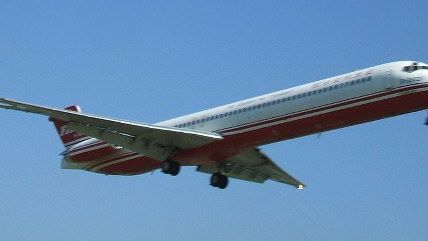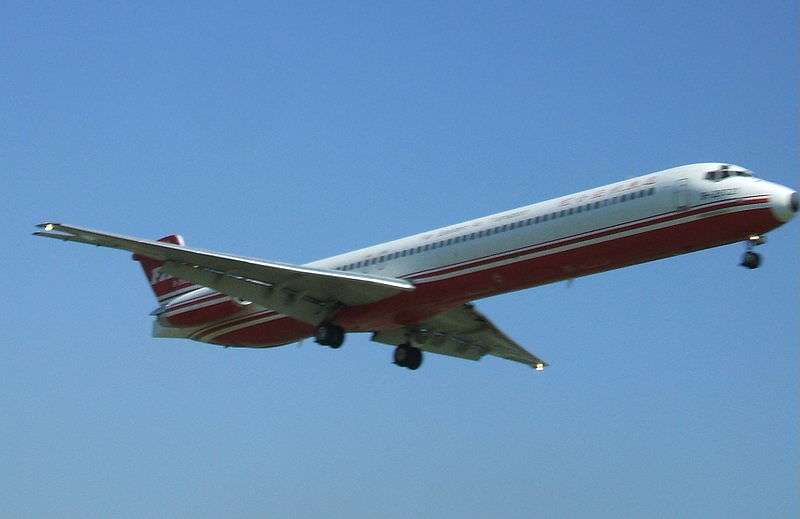The No-Fly List Takes a Hit
For more than a decade, the federal government assumed it could consign thousands of Americans to travel purgatory without justifying itself to anyone. That may be changing.


Americans have always treasured the freedom to pick up and go anywhere they please. Our forebears had to travel to get here, often had to travel more after they arrived and sometimes moved on to uncharted territories out West only to return East. No one stopped them, whatever direction they were going.
They had the good fortune to live and migrate before the creation of the all-encompassing national security state. After the 9/11 attacks, Americans woke up to find that their freedom to travel was not a fundamental right but a vaporous privilege, bestowed by the government and revocable at its whim.
Or rather some Americans came to that realization: people who tried to board commercial airliners only to be turned away without an explanation or much recourse. They had entered the murky labyrinth of the federal no-fly list.
One victim was Gulet Mohamed, who came to this country as a boy from Somalia with his immigrant parents and became a citizen. In 2011, he took a break from college to see a little of the world and improve his Arabic, spending time in Yemen, Somalia and Kuwait.
The latter country is where things went wrong. Upon trying to renew his visa, he was seized, beaten and tortured under interrogation. When his family bought him a plane ticket home, the Kuwaitis took him to the airport—where he was barred from boarding. Not until several days later, after a lawyer challenged his exclusion, was he allowed to fly back to the United States.
Once here, he went to court, arguing that he had been placed on the no-fly list, for reasons unknown to him, in violation of his constitutional right to travel, which has been repeatedly recognized by the Supreme Court. The government refused even to say whether Mohamed was on the no-fly list but insisted that even if he was, his right to travel was not abridged.
In the incomparable logic offered by the Justice Department, he was perfectly free to enter the United States —even if he was not allowed to get on the plane that would bring him here. If he could have found some other way to get back, the government claimed, he would have been greeted with open arms.
Secrecy is the standard mode of the FBI's Terrorist Screening Center, which compiles the list. Not only does it refuse to notify people of their inclusion, but it refuses to say how many names the list contains. As of 2012, though, the number reportedly amounted to 21,000.
As a rule, these are people who have not been arrested or convicted of breaking any law. They may venture into subways, elementary schools, shopping malls, government buildings, movie theaters and other sites where innocents could be slaughtered. Those on the list are treated as a mortal threat only aboard a commercial aircraft.
It's a strange policy with dire and often unjust results. Last week, though, its future was put in doubt. A U.S. district court in Virginia ruled that Mohamed had a right to challenge his apparent inclusion on the no-fly list because of its "profound" impact on his life.
Judge Anthony Trenga wrote that "a No Fly List designation transforms a person into a second-class citizen, or worse." It hinders him from visiting family and friends, making religious pilgrimages and taking vacations, and it could wreck his career.
"It is difficult to think of many job categories of any substance where an inability to fly would not affect the prospects for employment or advancement," he noted. Oh, and imagine the professional and personal rewards of being labeled a potential terrorist by your government.
All this happens with little protection against groundless suspicions. If Mohamed went through the usual procedure to challenge his inclusion, noted Trenga, he would not be told why he was included, he would not be able to see or dispute the government's evidence, and, when the government had completed its review, he would not even be told whether he was on the list or off.
This is not the first court to rule against the policy, and it's not likely to be the last. For more than a decade, the federal government assumed it could consign thousands of Americans to travel purgatory without justifying itself to anyone. But the no-fly list as currently administered may be headed for its final approach.


Show Comments (24)